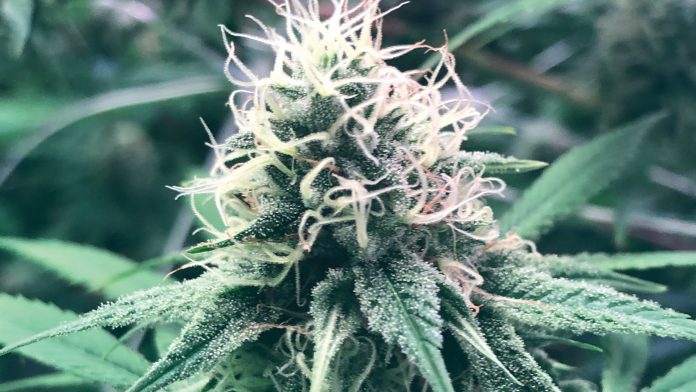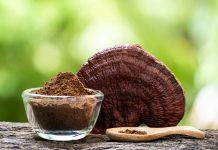
Discover how Canadian cannabis producers like Aqualitas are helping to bridge the gaps between patient needs and the continent’s currently limited cannabis production.
Aqualitas, a Canadian cannabis company, recently entered the European Union’s cannabis marketplace. From its home along the south shore on Canada’s east coast, in the province of Nova Scotia, the company recently made its first international shipment of dry cannabis flower to Poland for product development. It has also signed a three-year supply contract with one of Germany’s largest licenced medical cannabis distributors for sale in the European Union and the United Kingdom. By the end of the year it is anticipated that Aqualitas will be exporting the first certified-organic cannabis oil to the Australian medical marketplace as well.
Aqualitas’ story is unique and, much like the rapidly-developing international cannabis landscape, is always evolving. Nearly five years ago, a group of individuals concerned about the challenges Canadians were facing when trying to access quality medical cannabis, gathered to talk about how they could effect change. This group – comprised of professionals with backgrounds in science, medicine, pharmacy, finance, law, communications and marketing, sales, security and project management – determined that it could, and would, do something about this issue, and thus, Aqualitas was born. Derived from the Latin roots for water and quality, the name ‘Aqualitas’ is a nod to vital aspects of the company and its processes, products and commitment to clients.
Aqualitas’ founders established the company’s fundamental values and began an application under the rigorous Health Canada licensing process to obtain a cultivation, processing and sales licence. Aqualitas immediately set out to differentiate itself among other Canadian cannabis companies with these values always our priority:
- Wellness and a good quality of life for clients and employees;
- Affordable access to medicine;
- The dignity of persons with disabilities and people in palliative care who require medical cannabis;
- The growth of a safe, consistent and quality product;
- Environmental sustainability;
- Community participation and support; and
- Innovation through research and development.
Knowing the company wanted to do things differently – in fact, better – Aqualitas built a team of scientists from across many disciplines to work to develop a unique cultivation system that would consistently deliver premium products while keeping its environmental footprint to a minimum. It also focused on product development and innovation, recognising the second wave of cannabis offerings arising from the full legalisation of cannabis and its derivative products (edibles, concentrates, and topicals). In an increasingly competitive landscape, Aqualitas is distinguishing itself as a leader and partner in pharmaceutical, wellness and recreational products that focus on quality, consistent dosing, and cultivar characteristics of origin and traceability.
Aqualitas is also guided by a medical patient advisory board with diverse representation in health care, research, and patient advocacy, as well as patients who use cannabis in the management of conditions for which cannabis is recommended. Aqualitas benefits from a strong relationship with Springboard Atlantic, which represents 19 member universities in Atlantic Canada.
In particular, it has established collaborative research partnerships with two of Springboard’s members, Acadia (Wolfville, Nova Scotia) and Dalhousie (Halifax, Nova Scotia) universities, to create a method of producing organic cannabis with minimal environmental impacts, and to develop products. These projects have received research funding from Canadian federal and provincial levels of government including the Natural Sciences and Engineering Research Council of Canada (NSERC-IRAP), the Scientific Research and Experimental Development Tax Incentive Program (SR&ED), Bioenterprise Canada, Innovacorp, and Nova Scotia Business Inc.
Pharmaceutical quality systems and production EU GMP and cGMP
Aqualitas is committed to the production of medical products using the highest GMP standards for pharmaceutical-quality systems, personnel, premises, equipment, documentation and production. Its quality assurance and production teams have extensive backgrounds in quality control and GMP, and each production worker in its facility receives hands-on and technical third-party certification training in required GMP practices.
The company’s facility, personnel and procedures have been inspected by its distribution and pharmaceutical partners and its pre-audits for certification have been satisfactorily completed. All final certifications will be in place when the company begins its participation in medical and pharmaceutical trials.
A greener green – sustainable cultivation
After determining that it wanted to do things differently, the company began looking at various ways to cultivate cannabis. The team knew it wanted to grow organically, deliver a top-quality product, and reduce the typical environmental impact of indoor cannabis cultivation. Aqualitas decided that the best production method, one that could uphold the company’s values, was aquaponics.
Aquaponic growing combines hydroponics (soil-less growing of plants) and aquaculture (raising fish). Fish and plants are grown together in an integrated system, each one benefiting the other. The outputs from the live koi fish that Aqualitas uses in its system are broken down into nitrates and other beneficial inputs which are used by the plants as nutrients for growth. Fish waste is high in nitrogen and potassium, which means that no synthetic fertilisers need to be added to the system. The plants act as a natural filter, returning clean water back to the fish, allowing them to live out their natural lives.
While aquaponics has been used in agriculture for millennia, its success is typically limited to leafy greens, as this method of growing usually lacks the nutrients required for flowering plants. Through its exclusive research partnership with FinLeaf Technologies, Aqualitas’ scientific team consulted with aquaculture experts at Dalhousie University and conducted trials at Acadia University. It developed a proprietary aquaponic process and nutrient recipes to meet the unique needs of flowering plants like cannabis. This cultivation method achieves optimal growth cycles, vigorous plant growth, uses all-natural inputs, sustains fish health, and significantly reduces water consumption and electricity use.
The research and development that Aqualitas has undertaken has garnered support from a number of government agencies and has supported student researchers through the Canadian Federal Agriculture Youth Green Jobs Initiative and Mitacs program. It has also allowed for international student internships, including current sponsorship of a student from the Aquaculture Institute, University of Stirling, in Scotland. The aquaponics work has been recognised with a Clean Tech Energy Award and Spark Innovation Awards (both sponsored by Nova Scotia’s Innovacorp) and was featured as leading the industry and setting the standard for sustainable cannabis cultivation and fish farming by the Washington Environmental Law Institute.
Coupled with its use of LED lighting, Aqualitas’ aquaponics platform cultivates premium cannabis using 90% less water and 50% less energy than traditional indoor growing methods. While the company fully scales up its aquaponics system for commercial harvest, it is also employing soil-based growing using an organic living soil. Living soil is an all-natural growing medium that is free from synthetic amendments. This type of soil contains natural nutrients that rely on the symbiotic relationship between microorganisms and the cannabis plant’s root system.
Research shows that plants grown in living soil are healthier and less prone to pests and disease than plants grown in other soil media. For the consumer, this offers reassurance that the product they are consuming has been grown without synthetic ingredients, and that the living plant was grown in optimal conditions using a sustainable medium. This is particularly important for medical cannabis clients with environmental sensitivities that can be affected by synthetic additives to a crop via the type of soil or fertilisers being used.
Commitment to international organic standards
Hill and Knowlton research concludes that 57% of medical cannabis consumers and 43% of recreational consumers prefer organic product.1 Aqualitas was founded with a mission to find a more sustainable method of cultivating cannabis indoors. Alongside this sustainable mandate is its commitment to growing organically. In recognition of its adherence to international organic and sustainability standards, its regulatory compliance, and quality and environmental stewardship, Aqualitas is the first Canadian cannabis company to receive Clean Green Certification, a cannabis-specific certification. It is also in the process of receiving Pro-Cert certification.
Pro-Cert Organic Systems is one of North America’s largest certification bodies and its accreditations are recognised internationally. Pro-Cert status will allow the company to certify as organic not only its cannabis crops, but its value-added cannabis products such as oils, edibles and topicals.
The company’s organic certifications provide clients and consumers with the confidence that none of its products released under its organic certification undergo irradiation. Irradiation is the process of exposing harvested cannabis to non-radioactive gamma rays to kill mould, bacteria and other contaminants in order to meet the stringent safety standards of Health Canada.
It is a practice that is not without controversy. It can reduce the amounts of terpenes in cannabis, which research is suggesting play a key role in the medical benefits of the plant. Additionally, since the practice of irradiating cannabis is relatively new, there is not an abundance of research on its safety or its impact on the efficacy of cannabis.
Aqualitas’ ability to grow clean cannabis within the required specifications for the mould, bacteria and other contaminants, without irradiation, is a significant differentiator and one preferred by consumers in the EU.
Organic practices clearly impact final product quality. After its first month of Nova Scotia retail sales, Aqualitas’ product was ranked number one of 50 listings in the premium category, and number two overall among 195 products.
Rooted in science, nourished by nature
A key element to Aqualitas’ success story is the company’s commitment to research and development. From its inception, Aqualitas has invested in research and in building its scientific team. In 2018, Aqualitas launched Sindica Global Institute for Cannabis Research & Innovation as its centre of excellence, advancing cannabis science and developing value-added consumer products. Benefitting from its close relationship with Acadia University, Aqualitas is also in the process of establishing lab space at the university’s Laboratory for Agri-Food and Beverage, where it will be conducting sensory panel testing on cannabis beverages and edibles and a clinical study on bioavailability of ingested cannabis.
Sindica is currently in discussions with international companies from the US, Israel, Spain, South Korea, Poland and the Netherlands that are seeking collaboration on research and innovation in cultivation technology (lights, nutrients, and data analytics and controls), sustainable energy and cannabis product innovation. Aqualitas has also partnered with an American company for a US FDA clinical trial. It is expected that the company will be providing the bulk intermediate cannabis oil for the trial in July 2019. Aqualitas anticipates offering genetics, formulations and manufacturing on two additional pharmaceutical drug trials in development in Canada.
In addition to this, Aqualitas has built a scientific advisory team with 10 experts at the PhD level from across North America, including Virginia Tech, Dalhousie and Acadia universities. Its on-staff complement of scientists is equally as impressive. The company’s operations are led by Josh Adler. A process engineer with a masters in food science, Adler brings a wealth of experience in production, project management and quality assurance within the beverage industry. He has a strong economic and statistical background in manufacturing and the implementation of integrated facility management systems, budgeting and forecasting.
Adler has developed and implemented integrated lean manufacturing in conjunction with CPP/HACCP, GMP and organic certification principles and in relation to quality, food safety and sanitation. He has extensive processing and packaging experience and technical experience in bioreactions, agriculture (including plant harvest management) and facility operations. Adler oversees all aspects of Aqualitas’ day-to-day operations, including the build-out of the facility’s expansion, its post-harvest processing and packaging, and managing and streamlining each process step carried out at the facility to support continuous improvement and lean operations.
An equally vital role within its scientific team is that of the Quality Assurance Person, which is also a mandatory position under Health Canada regulations. In any production facility, QA is an instrumental function, but within the regulatory environment of the cannabis industry and in a GMP facility, QA is imperative. Priyanka Mehra fills this role and leads the company’s GMP certification team. With master’s degrees from Jiwaji and Dalhousie universities, Mehra has more than a decade of experience in food science and technology research focusing on food chemistry, fermentation technology, brewing science, new product development, food processing and food quality.
She has experience in quality control in cannabis, food processing, and agricultural environments and has pharmaceutical audit and GMP experience with lean training and organisational controls. Aqualitas’ quality assurance team includes a diverse group of leaders with experience in GMP and export: Dorothy Easy, a biologist with more than 20 years of experience in analytical testing and quality control; Sara Landry, a professional engineer with extensive processing experience; Wade Davison, a chemist. Katharina Seitz-Cochrane, PhD., the company’s head of international sales, rounds out the company’s QA team as its liaison with German EU GMP sponsors.
Aqualitas holds federal licences for cannabis cultivation, processing and sales. The processing licence is required for producing cannabis extracts from dried flower and trim. Extracts are currently used to create cannabis oil for consumers but their use will expand widely once beverages, edibles and topicals become legal in the country in late 2019. Overseeing formulation and production in this area is Lead Extraction Scientist, Michael Danquah. With a master’s degree in physical chemistry, Danquah has experience managing extraction laboratories and has done significant work in supercritical fluid extractions, molecular distillation and separation chemistry.
Without a healthy, thriving population of koi, Aqualitas would not be able to operate its aquaponics system. Danielle Maitland brings a unique skillset to Aqualitas as she has backgrounds in both aquaculture and horticulture. Maitland is tasked with overseeing the care and management of the company’s fish stock, which numbers well over a thousand. Her scientific credentials include a master’s degree in sustainable aquaculture from Stirling University in the UK, as well as a master’s in chemical engineering and a diploma in horticulture from Canadian universities. Our aquaculture team is also led by Greg Chambers, who has more than 20 years of experience in fish management, an Associate of Applied Science diploma and certification in Wastewater Treatment and Collection Operator, Class II.
Embracing diversity – a women led company
Aqualitas is a women-led company. The majority of its directors are women, and women occupy leadership roles in every key department. It is important to note that women in the science, technology, engineering and mathematics (STEM) fields are working with Aqualitas in every STEM discipline and they have expertise at the bachelor, master’s and PhD levels.
Its founding director and CEO, Myrna Gillis QC. J.D., a lawyer and disabilities advocate, is one of only five founding women CEOs of the 180 licence holders in Canada. The company’s vice president role is also filled by a woman, Barbara Darby, LLB. PhD. The company’s goal of promoting not only gender equality, but cultural and social diversity in the workplace, is reflected in the members of the amazing and talented team at Aqualitas and has certainly contributed to the company’s success to date.
Opportunities on both sides of the Atlantic
It became clear to Aqualitas quite early on, that there was going to be significant demand for its organically and sustainably grown cannabis. Domestic and international shortages of high-quality products have meant that Aqualitas has been expanding to help meet demand since day one. Much like Canada has over the past decade, a number of European countries are experiencing shifts in attitudes toward, and legislation of medical cannabis. This evolution is driven by a number of factors including cultural shifts that are reducing the stigma of cannabis use; increasing anecdotal and scientific evidence for its efficacy for many medical conditions; and, the embracing of cannabis as a new and prosperous global industry, one that is estimated to be worth CAD 196bn (~€131 bn) by 2024.
While a number of countries have legalised medical cannabis, cannabis production within the European Union is still tremendously limited. Seeing the gap between patient need and product availability in Europe, last year Aqualitas began the process of obtaining EU-ICH GMP certification. With the completion of its GMP pre-audit, the company recently signed a supply agreement with a potential value at over $100m () with one of Germany’s largest pharmaceutical distributors.
Rural community with global reach
In less than five years, Aqualitas has grown from a lofty concept into something much larger and impactful than its founders could have predicted. Its initial licence application was filed in 2015 and since that day, the milestones have been significant and many. The Canadian cannabis landscape has evolved and expanded to include a recreational marketplace and broadened medical market. Medical research is advancing the understanding of the efficacy of cannabis for many conditions and is discovering potential for cannabis to help even more patients. Products and modes of delivery are being developed to provide consumers with safe, consistent and predictable experiences. The stigma surrounding cannabis use is dissipating before our very eyes.
The fact that a company like Aqualitas, one that makes its home in a quiet seaside town in picturesque Nova Scotia, has entered the international stage and has already completed a sale and export to the European Union, speaks to the almost limitless opportunities within this global industry. When a company does things well – when it invests in the best people, the best methods for the environment, and cultivates cannabis with quality always top-of-mind – anything is possible.
Reference
- Topline Report – prepared by Hill+Knowlton Strategies (Dec 20, 2017) https://www.rubiconorganics.com/wp-content/uploads/2018/11/Rubicon-Corporate-Presentation-November-2018-vF.pdf
Nancy Stapleton
AQUALITAS
+1 902 354 3736
nstapleton@aqualitas.ca
Please note, this article will appear in issue 10 of Health Europa Quarterly, which will be available to read in July 2019.







